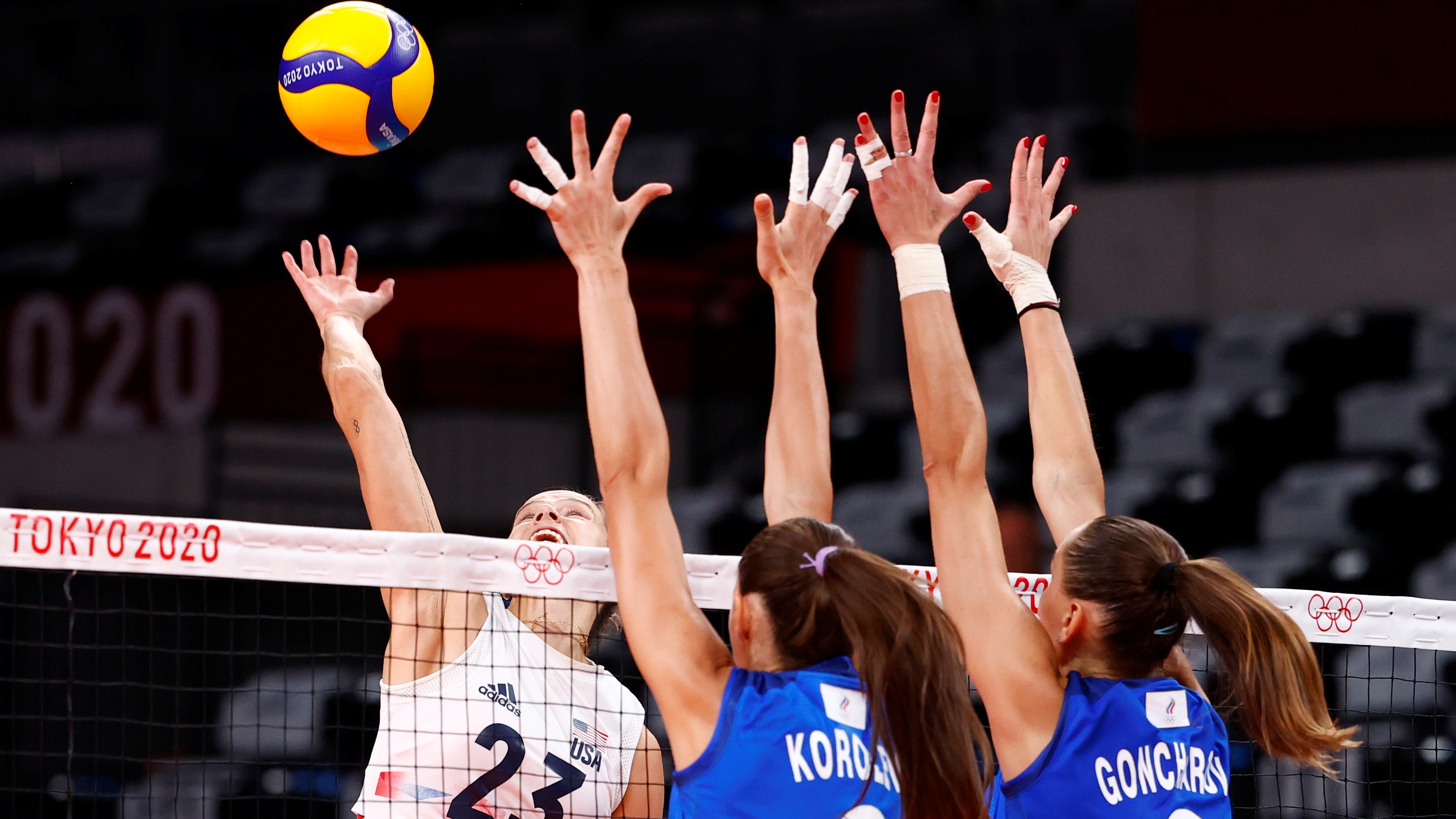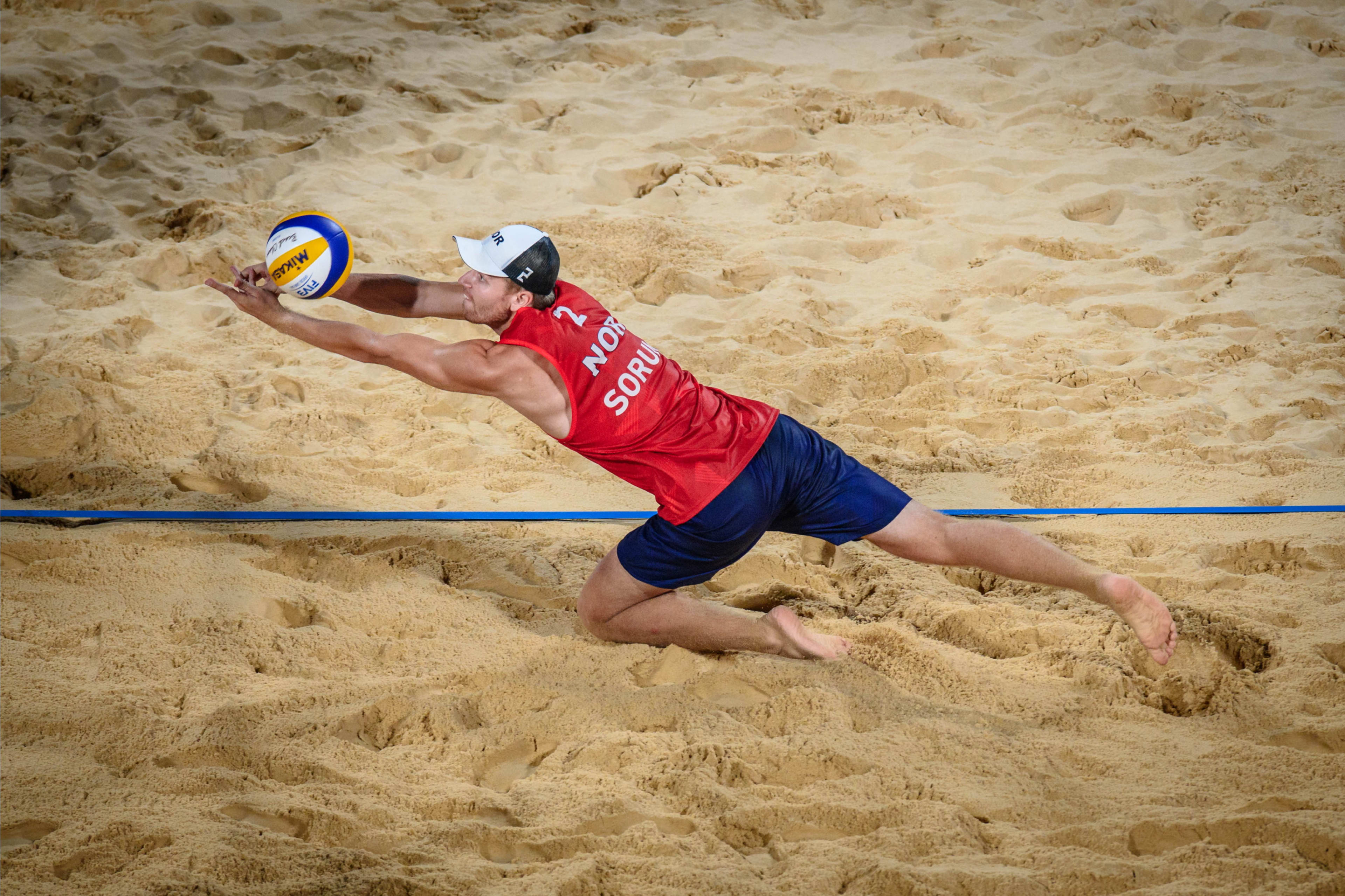Rules and Gameplay of Olympic Volleyball

Olympic volleyball is a dynamic and exciting sport that demands athleticism, strategy, and teamwork. The game is played by two teams of six players each on a rectangular court divided by a net. The objective is to score points by grounding the ball on the opponent’s court while following the rules of the game.
Scoring and Rotation
The scoring system in Olympic volleyball is based on a rally point system, where a point is awarded to the team that wins a rally, regardless of which team served. A rally starts with a serve and ends when the ball touches the ground or when a fault is committed. The first team to reach 25 points wins a set, with a minimum two-point lead required. A match is won by the first team to win three sets.
- Rotation: The players rotate positions clockwise after each point. This ensures that all players have an opportunity to play in all positions on the court. The rotation system is essential for maintaining a balanced team and for providing players with different roles and responsibilities.
- Serving: The serve is the first action of each rally. The server stands behind the end line and must hit the ball over the net and into the opponent’s court. A successful serve puts the serving team in a strong position to win the point.
Attacks and Blocks
Attacking is a crucial aspect of volleyball, where players aim to hit the ball forcefully over the net to score a point. There are different types of attacks:
- Spike: This is the most common attack, where a player jumps high and hits the ball with a powerful downward motion. A successful spike is difficult to defend, as it travels at high speed.
- Tip: This attack involves gently hitting the ball over the net with a soft touch. Tips are often used to surprise the opposing team and to score points when the spike is blocked.
Blocking is the defensive technique used to prevent the opponent’s attack from scoring. Blockers jump at the net and try to stop the ball with their hands or arms. A successful block can be a powerful way to win a point.
Strategies and Tactics
Successful Olympic volleyball teams employ a variety of strategies and tactics to gain an advantage over their opponents. These strategies include:
- Offensive Strategies: Teams often focus on attacking the opponent’s weakest players or on using a variety of attack options to keep the defense guessing. The use of fast attacks and quick sets can also be effective in creating scoring opportunities.
- Defensive Strategies: Teams employ various defensive strategies to prevent the opponent from scoring. These strategies include using a strong libero to cover the back court, employing a tight block to prevent spikes, and using strategic positioning to anticipate the opponent’s attack.
- Teamwork: Successful volleyball teams emphasize teamwork and communication. Players need to work together effectively to set up attacks, defend against attacks, and execute their coach’s strategies. Good communication is essential for coordinating movements and for ensuring that all players are on the same page.
Olympic Volleyball Competitions and Players

The Olympic volleyball tournament is a prestigious event that showcases the world’s best volleyball players and teams. It’s a culmination of years of training and dedication, culminating in a thrilling competition for the ultimate prize.
Olympic Volleyball Tournament Format
The Olympic volleyball tournament follows a specific format to determine the champion.
The qualification process for the Olympic Games involves continental and global tournaments. Teams compete in regional championships, and the top finishers qualify for the Olympic Games. The qualification process ensures a diverse range of teams participate in the Olympics, representing various continents and volleyball powerhouses.
The Olympic volleyball competition is divided into two stages: the preliminary round and the knockout stage.
The preliminary round is a round-robin format where each team plays against every other team in their pool. The top teams from each pool advance to the knockout stage.
The knockout stage consists of single-elimination matches. Teams play each other in a series of matches, and the winner advances to the next round. The final match determines the Olympic champion.
Top Olympic Volleyball Players and Teams
The Olympic Games have witnessed the rise of legendary volleyball players and teams.
- Karch Kiraly (USA): Considered one of the greatest volleyball players of all time, Kiraly is a three-time Olympic gold medalist, winning in both indoor and beach volleyball. His exceptional athleticism, powerful spikes, and leadership skills made him a dominant force in the sport. He was inducted into the International Volleyball Hall of Fame in 2001.
- Sergey Tetyukhin (Russia): Tetyukhin is a three-time Olympic medalist, winning gold in 2000 and bronze in 2004 and 2008. Known for his exceptional spiking power and ability to score crucial points, he is widely regarded as one of the most successful volleyball players in history.
- Brazil Men’s National Volleyball Team: The Brazilian men’s national volleyball team has consistently been a dominant force in international volleyball. They have won three Olympic gold medals (2004, 2012, and 2016), two silver medals (1984 and 1996), and one bronze medal (2008). Their success is attributed to their strong team chemistry, powerful attacks, and effective blocking.
- USA Women’s National Volleyball Team: The USA women’s national volleyball team has established itself as a powerhouse in the sport. They have won three Olympic gold medals (1984, 2008, and 2012), two silver medals (1992 and 2000), and one bronze medal (2016). Their success is due to their well-rounded game, with a strong offense, defense, and blocking.
Impact of Olympic Volleyball
The Olympic Games have significantly impacted the development of volleyball worldwide.
The Olympic platform has provided a global stage for volleyball, increasing its visibility and popularity. The intense competition and the presence of top athletes inspire young players to pursue the sport, leading to the growth of volleyball academies and leagues around the world. The Olympic Games have also contributed to the development of new techniques and strategies, raising the overall level of play.
Olympic volleyball is a spectacle of athleticism and strategy, where nations clash on the court in a fierce dance of spikes and blocks. The US women’s volleyball team, a force to be reckoned with, has consistently demonstrated their prowess on the international stage, their legacy a testament to strength and triumph.
Their commitment to excellence inspires athletes worldwide, raising the bar for the sport and solidifying their place in the history of Olympic volleyball.
Olympic volleyball, a spectacle of athleticism and strategy, has captivated audiences for decades. The anticipation for the volleyball olympics 2024 is already palpable, as teams from around the world prepare to compete for the coveted gold medal. The roar of the crowd, the thunderous spikes, and the acrobatic digs will once again paint a vivid tapestry of athletic excellence on the international stage.
